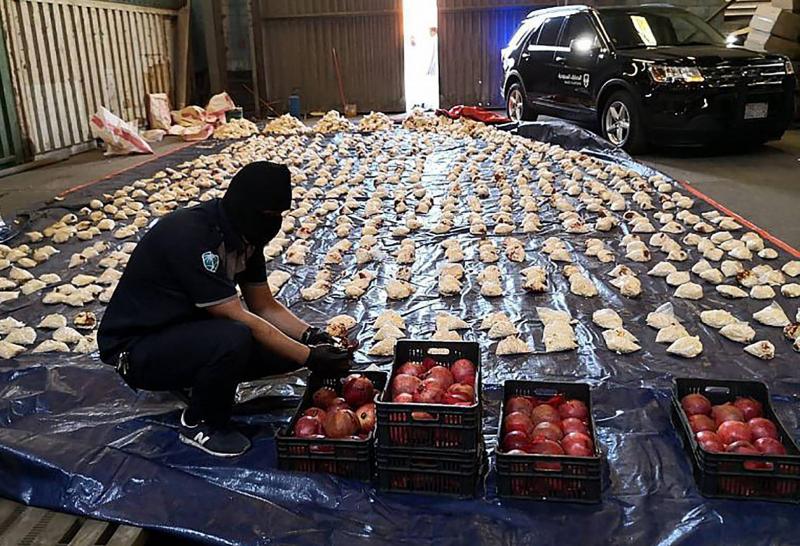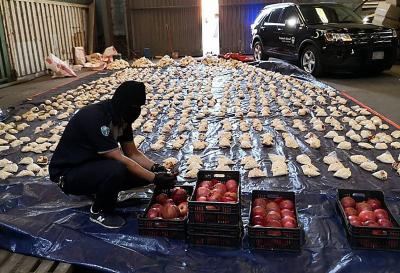The stimulant substance known as Captagon has established its presence in the Middle East, from the bloody front lines to crowded construction sites and even at high-end parties. Curbing the Captagon trade has become a key demand for several Arab countries seeking to restore relations with Syrian President Bashar al-Assad, whose government faces accusations of benefiting from this trade.
Here is a look at the history of this drug and its current use. Captagon is the brand name of a stimulant substance that was first produced in Germany in the 1960s to help treat attention deficit disorders, narcolepsy—a neurological disorder affecting the brain's ability to control sleep-wake cycles—and other medical conditions. It was discontinued afterward, but a version of it continued to be produced illegally in Eastern Europe and later in the Arab region, becoming notorious in the Syrian conflict that erupted after anti-government protests in 2011.
This illegal version is known as "Jihad Drug" or "Poor Man's Cocaine," and it is believed to be made from a mixture of phenethyline, caffeine, and other substances. Captagon generates the ability to resist sleep and hunger.
**State Financing**
At the beginning of 2014, Syria was believed to be one of the main countries producing and consuming Captagon, with fighters, including members of the Islamic State (ISIS), using Captagon to prevent themselves from succumbing to sleep on the front lines.
As the situation along the front lines in Syria calmed down with the government and its allies regaining control over most parts of the country, the production and export of Captagon became a focus. Sources from regional intelligence agencies state that Captagon is still produced in small factories along the Syrian-Lebanese border, as well as in larger factories near the Syrian border with Jordan. Security sources indicated that some quantities are produced in Lebanon.
The United States, Britain, and the European Union have blamed the Syrian government for producing and exporting Captagon, accusing Maher al-Assad, the commander of the Syrian Army's Fourth Division and the president's brother, of being one of the key figures involved in this trade.
It is difficult to determine the value of this trade, but diplomatic sources say it brings in several billion dollars annually. The United States, the European Union, and Britain have accused the Fourth Division of the Syrian Army and other Syrian officials of benefiting from this trade. However, it remains unclear how much Captagon contributes to filling the state's coffers, if it indeed generates revenue for the government.




